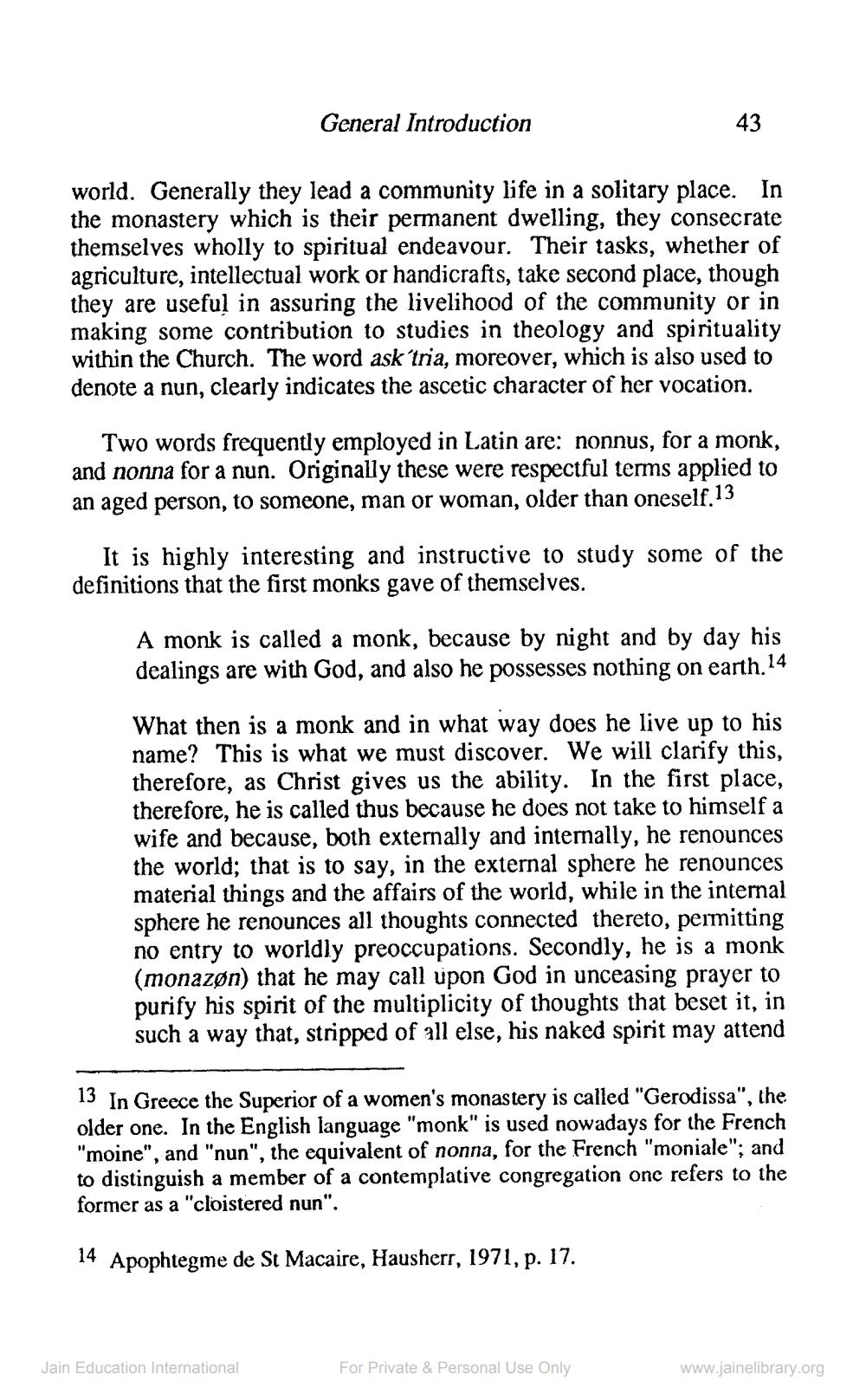________________
General Introduction
world. Generally they lead a community life in a solitary place. In the monastery which is their permanent dwelling, they consecrate themselves wholly to spiritual endeavour. Their tasks, whether of agriculture, intellectual work or handicrafts, take second place, though they are useful in assuring the livelihood of the community or in making some contribution to studies in theology and spirituality within the Church. The word ask tria, moreover, which is also used to denote a nun, clearly indicates the ascetic character of her vocation.
Two words frequently employed in Latin are: nonnus, for a monk, and nonna for a nun. Originally these were respectful terms applied to an aged person, to someone, man or woman, older than oneself.13
It is highly interesting and instructive to study some of the definitions that the first monks gave of themselves.
A monk is called a monk, because by night and by day his dealings are with God, and also he possesses nothing on earth.14
What then is a monk and in what way does he live up to his name? This is what we must discover. We will clarify this, therefore, as Christ gives us the ability. In the first place, therefore, he is called thus because he does not take to himself a wife and because, both externally and internally, he renounces the world; that is to say, in the external sphere he renounces material things and the affairs of the world, while in the internal sphere he renounces all thoughts connected thereto, permitting no entry to worldly preoccupations. Secondly, he is a monk (monazøn) that he may call upon God in unceasing prayer to purify his spirit of the multiplicity of thoughts that beset it, in such a way that, stripped of all else, his naked spirit may attend
13 In Greece the Superior of a women's monastery is called "Gerodissa", the older one. In the English language "monk" is used nowadays for the French "moine", and "nun", the equivalent of nonna, for the French "moniale"; and to distinguish a member of a contemplative congregation one refers to the former as a "cloistered nun".
14 Apophtegme de St Macaire, Hausherr, 1971, p. 17.
Jain Education International
For Private & Personal Use Only
www.jainelibrary.org




